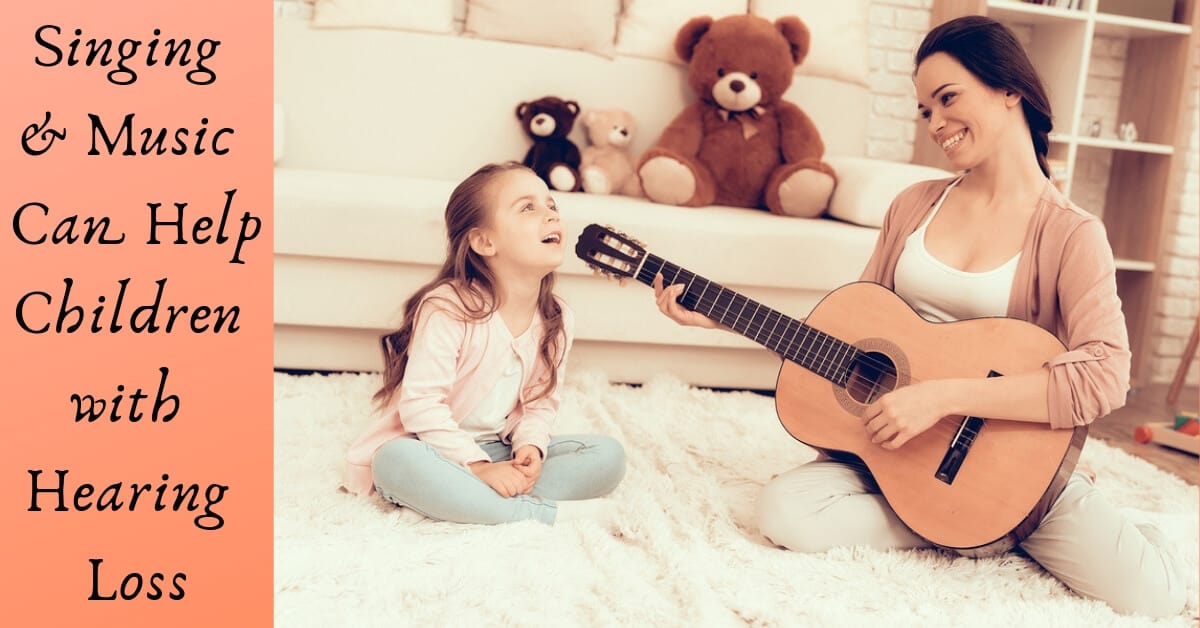Hearing loss may be seen as a senior ailment, and while it’s true that hearing loss is a natural part of aging for some, hearing loss affects all ages. Between two and three children in every 1,000 children in the United States are born with hearing loss in one or both ears. More than 90% of deaf children are born to hearing parents. Thankfully there are always new advances in the treatment of hearing issues, and research being done involving hearing loss treatment in children is progressing every day. Some recent research shows children with hearing loss can be helped with music and singing.
It goes without saying that everyone can benefit from regular hearing evaluations and a test at Desert Valley Audiology each year should be part of your regular medical regime.
Musical activities and children with hearing loss
There are more than 38,000 children in the United States who have cochlear implants to treat their hearing loss. Children with the implants have difficulties perceiving speech through all the noise that surrounds them. Singing and playing instruments have been found to improve auditory skills in children with normal hearing so researchers wanted to examine children with hearing loss to see if they, too, would find benefits in the same activities.
Previous studies discovered children with cochlear implants benefit more from lip reading than children without hearing loss, and have also looked at the importance of auditory and visual cues to help children with cochlear implants develop better speech perception.
The music study
Researchers at the University of Helsinki and the University college London compared the speech comprehension of children with cochlear implants to children with normal hearing, and they enrolled 43 children, in the study for 14 to 17 months. The children were between the ages of 4 and 13. Of the 43 children, 21 had the implants and 22 had normal hearing. Researchers divided the children with cochlear implants into a singing and a non-singing group. All of the children with cochlear implants had difficulty with speech perception prior to being involved in the study. The criteria for the children with cochlear implants was that they needed to have the implants done before the age of three, that they were fully functioning, and they had to have been using them for at least 30 months.
The children’s parents or guardians were asked to answer a series of questions after each session involving music and singing. The questionnaires were used to assess the children’s singing behavior and speech recognition development. The researchers also used a laptop and two loudspeakers to perform speech in-noise tests on the children within a controlled environment.
Study results
Researchers found that the brain’s response developed differently in children with implants who were in the singing group versus children in the non-singing group. Children in the singing group were more aware when it came to speech in noise than those in the non-singing group! The results of the study showed the importance of singing and music in a child’s upbringing, especially for those with cochlear implants. It showed music and singing have an impact on a child’s development, and that music can be a powerful tool to helping children learn to interact with the world around them.
Music was particularly useful for children who had pitch perception difficulties with the cochlear implants. As they continued to play and sing music, they had an easier time understanding the speech of other children in a noisy background and improved their social skills. One researcher wrote: “Hearing impaired children with cochlear implants who sing regularly have better perception of speech in noise compared to children who don’t sing. This is an important skill in daycare or school where children discuss and receive instructions in noisy conditions.”
The importance of a hearing evaluation
Children easily adapt to hearing aids and cochlear implants, so if your child has hearing loss, seek treatment for them as soon as possible! Have you noticed any hearing loss in yourself? The average adult waits between five and seven years before getting hearing aids and using them! Don’t be that statistic. Call us today, and let Desert Valley Audiology determine if you have hearing loss and help you create a treatment plan.

